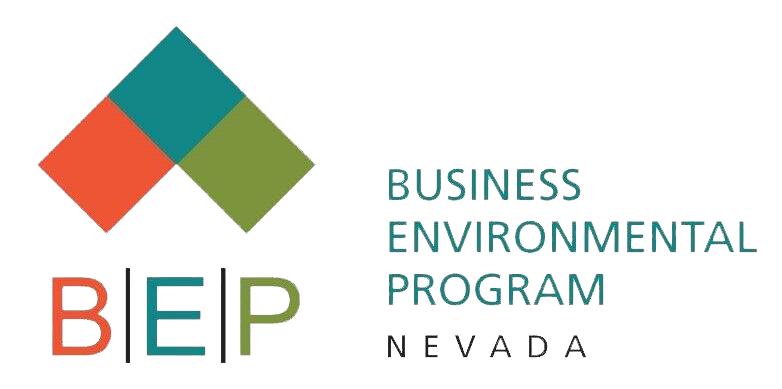There are many challenges to starting, restarting and managing your operation during good times, but additional challenges during the pandemic need even more careful planning, oversight and management. It is important to understand the COVID-19 requirements that may still apply to your industry, suggested best practices, and resources available to help you.
COVID-19 Requirements

Nevada’s Roadmap to Recovery lays out requirements for businesses with specific capacity limits and other requirements Starting May 1st, 2021, the state transitioned to local authority for setting specific requirements by business types. Visit the Nevada Health Response website for the latest updates on COVID-19 Guidelines in Nevada.
Industry Best Practices
Some general best practices and tips that may help you comply with guidelines and help your customers and employees feel safe include:
- Require employees and guests to wear face masks
- Social Distance
- Designate – with signage, tape, or by other means – six feet of spacing for employees to maintain appropriate social distancing
- Post social distancing signage and disinfect high-contact surfaces
- If possible, provide foot pedals to open doors, or prop doors open to avoid contact
- Limit work travel
- Stagger arrival of all employees and guests
- Practice routine cleaning and disinfection of frequently touched objects and surfaces such as workstations, keyboards, telephones, handrails, and doorknobs
- Reduce sharing of work materials
- Redesign/space workstations for 6 feet or more of distance
- Create one-way aisles where possible
- Have guests complete a self-assessment questionnaire prior to arrival at your facility
- Innovate
- Install and use a touchless, non-signature payment system
- Enable natural workplace ventilation
- Cleaning
- Have hand sanitizer and sanitizing stations and products readily available for employees and customers
- Require frequent and thorough hand washing, including providing workers, customers, and worksite visitors with a place to wash their hands. If soap and running water are not immediately available, provide alcohol-based hand sanitizer
- Ensure frequent disinfection of desks, workstations, and high-contact surfaces
- Daily deep disinfection of high contact surfaces (e.g. door handles, light switches, seats, railings, cabinetry handles, appliance handles, toilets, countertops, phones, tables, etc.)
- Use cleaning products that meet the EPA’s criteria for use against SARS-CoV-2 (the virus that causes COVID-19) – this list of products can be found on the EPA website here: List N: Disinfectants for Use Against SARS-CoV-2
- Read more about Cleaning and Disinfecting during a pandemic
Business Basics
Business basics are more important than ever. Evaluate your profit and loss statement. Look for ways to reduce operating costs. Analyze your cash flow and breakeven to evaluate the impacts of guidelines and best practices on your operations. As Nevada’s COVID-19 measures evolve you may need to continually adjust your operations. Here are a few things to think about:
- Get Help
- Contact a business development counselor at the Nevada SBDC by calling 800.240.7094 – we can help you assess your operations and decide on best strategies for your business
- For questions about cleaning and disinfecting, strategies to control new waste streams, or other environmental questions, contact an environmental business advisor at BEP at 800.882.3233
- General Operations
- Identify alternate supply chains for critical goods and services. Some goods and services may be in higher demand or unavailable
- Plan to monitor and respond to absenteeism at the workplace
- Implement plans to continue your essential business functions in case you experience higher-than-usual absenteeism due to COVID-19
- Cross-train employees to perform essential functions so the workplace can operate even if key employees are absent
- Ensure ventilation systems operate properly and increase ventilation rates and intake of outside air when possible; change HVAC filters often
- Employee Operations
- Support and encourage options to telework, if available and practicable
- Ensure that sick leave policies are flexible and consistent with public health guidance and that employees are aware of and understand these policies
- Consider emergency sick leave policies and flexible policies that permit employees to stay home to care for a sick family member or take care of children due to school and childcare closures. Additional flexibilities might include giving advances on future sick leave and allowing employees to donate sick leave to each other
- Communicate
- Keep communicating with your employees on social media and your website with announcements about the workplace
- Be open about the measures you are taking to meet guidelines; consider signage at your entrance so customers can be aware of the steps you are taking to prevent the spread of COVID-19 and to meet new industry guidelines
- Potential Cost-Saving Measures
- Reduce hours to minimize utility bills and increase time for cleaning, for example instead of staying open from 10:00 AM to 8:00 PM operate from 10:00 AM to 6:00 PM.
- Only turn on utilities that are needed – do not use all fans, lights, or air conditioners in the office when fewer people are occupying it
- Consider energy efficiency, waste minimization and other sustainability strategies
Resources
- Nevada Health Response: Business and Industry Compliance
- BOMA Nevada
- BOMA Maintaining a Health Office Environment Checklist
- Nevada Health Response
- Nevada Department of Business & Industry, Occupational Safety & Health Administration
- Southern Nevada Health District (SNHD) COVID-19 Guidance for Businesses and Permitted Facilities
- Nevada Governor’s Office of Economic Development
- Center for Disease Control (CDC) Guidance
- US EPA List N: Disinfectants Approved for Use Against SARS-CoV-2
- Small Business Federal Financial Assistance
- U.S. Securities Exchange Commission Resources for Small Business



